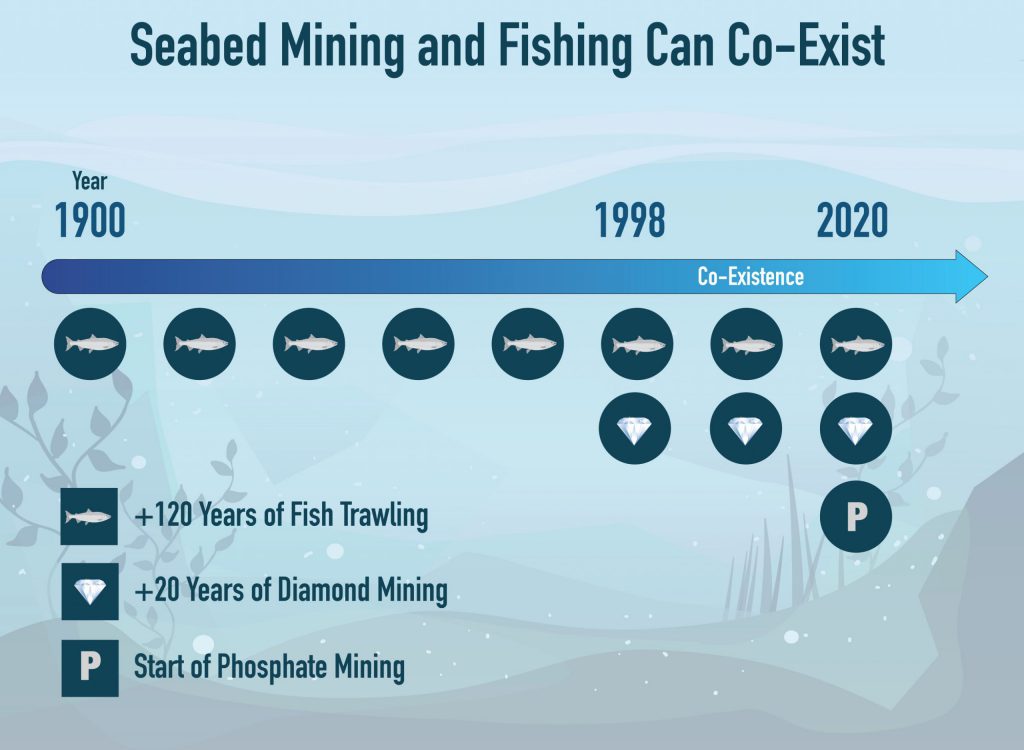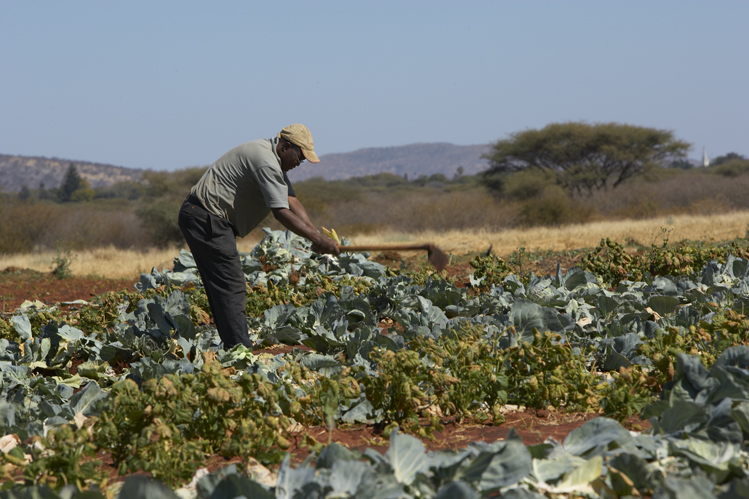The development of Namibia’s marine phosphate resources coupled with a fully integrated fertiliser industry are optimally aligned to the national development agenda and to achieve the goals of Vision 2030, NDP5, the Harambee Prosperity Plan, Growth at Home Policy, and the Blue Economy Policy. These initiatives all aim to improve the quality of Namibian lives and create jobs through industrialisation, integration and diversification of Namibia’s economy.
A Namibian phosphate industry will create local value addition of raw materials before they are exported, thereby building and promoting regional value chains, bilateral cooperation and continuous reform of the business environment to become more competitive. A phosphate industry provides potential for critical upstream, downstream and side-stream linkages for the Namibian economy, through value addition, integrated business development, logistics services, power, water, skills development and research.
Implementing 100 Years of Sustainable Mining and Industrialization
Namibia has one of the largest undeveloped phosphate resources in the world. The size of the resource can support sustainable mining and related industries for more than 100 years, thus benefiting future generations. This resource can be developed, along with associated industries, to produce a suite of fertiliser products for domestic consumption in Namibia and for export to the global market.
Phosphate is one of the key components in the production of fertiliser, an essential component for productive agriculture and farming activities. Types of fertilizer products that could be generated in Namibia are: Direct Application Phosphate Rock (DAPR), Single Super Phosphate (SSP), Triple Super Phosphate (TSP), Animal Feed Phosphate, MAP, DAP and more.
Positive Impact for Subsistence Farmers
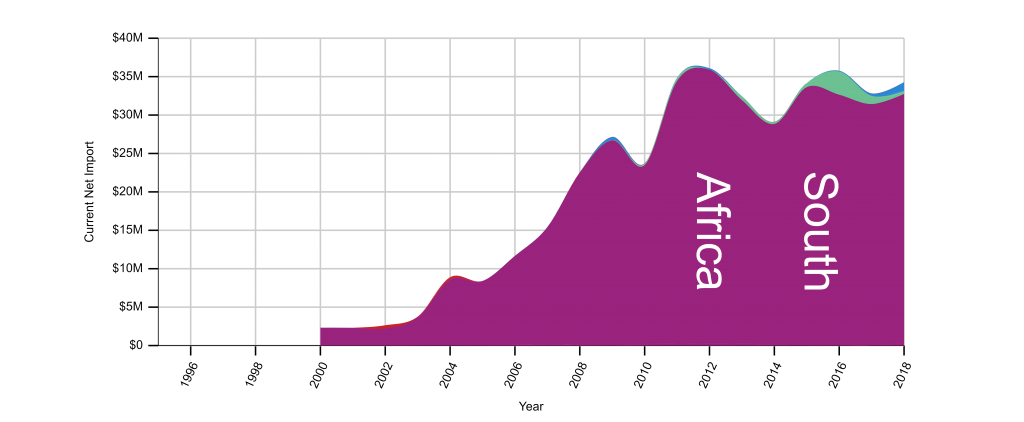
Currently, Namibia imports the bulk of its fertiliser from South African manufacturers, which amounted to N$515.13 million in 2018 (shown in the graph below as USD 34.342 million).
Due to the high import costs and price of fertiliser, it is generally not an affordable item for subsistence farmers. Fertiliser that is produced locally will be available at a much lower price to commercial and subsistence farmers with significant benefits to be realised. In particular, cheaper fertiliser will result in substantial productivity gains and increases in agricultural output from the subsistence sector, along with improved food security in rural areas and less dependence on expensive food imports.
Achieving Economic Diversification and Integration
Namibia’s economic policies commonly call for economic diversification and industrialisation through harnessing its competitive advantage and leveraging on natural resources.
Firstly, a fully integrated phosphate industry will achieve higher levels of economic integration, as the production of a final product will be locally consumed and support growth in other sectors of the economy, such as agriculture and food retail.
Secondly, fertiliser production will diversify the economy and accelerate industrialisation, as it is produced from an enriched natural resource, with all downstream value addition taking place within the country’s borders.
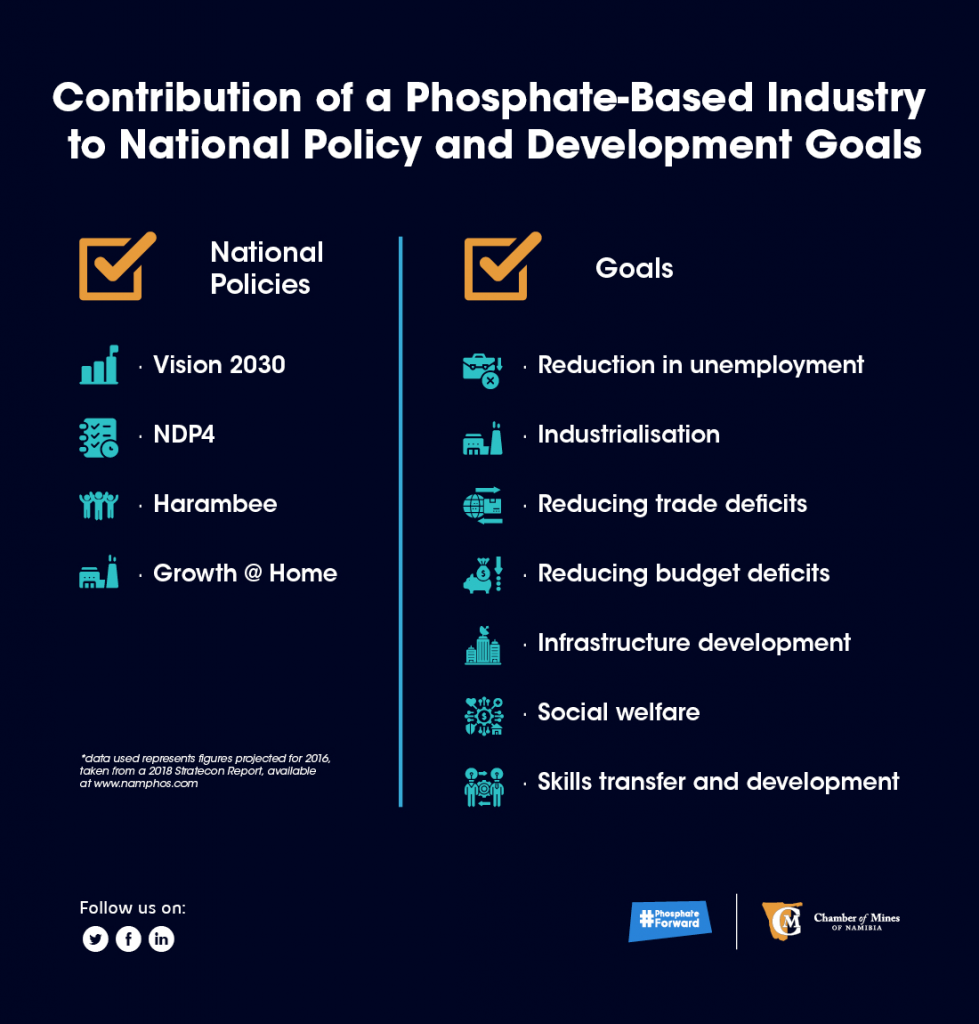
Improving Food Security and Trade Balance
The local production of fertiliser also means that Namibia is no longer dependent on external producers for its own requirements. A phosphate industry will position Namibia to become a net exporter of fertiliser servicing global agricultural markets.
Apart from the significant export and tax revenues that will be generated in a fully developed phosphate-based industry, there are also significant benefits internally for the local, regional and national economy. This will translate into an improved trade balance and reduced trade deficits in the long term.
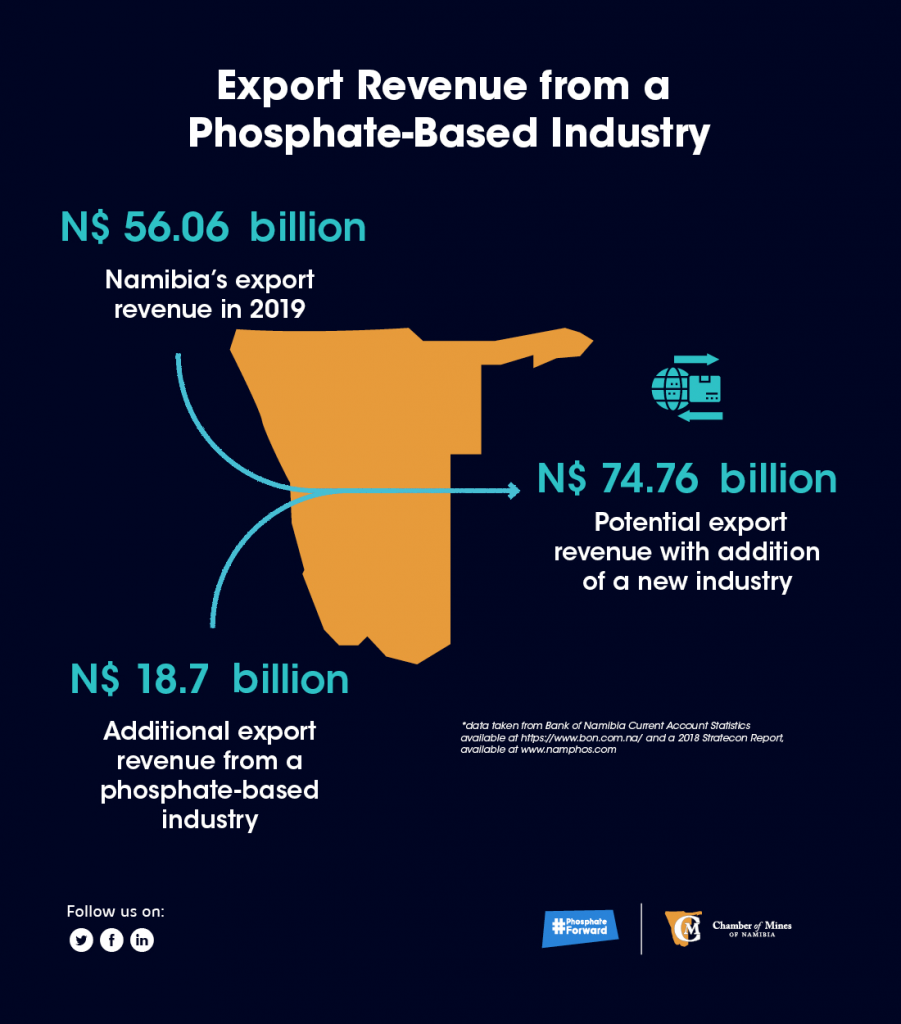
Increasing Job Creation, Knowledge, and Skills
The envisioned development of a marine phosphate industry in Namibia is projected to create over 51,600 direct, indirect and induced jobs through growth in the mining, processing, fertiliser production, agriculture and transport sectors, as well as the expansion or creation of supporting businesses that provide various essential products and services.
Namibia stands to benefit from a growth in human capital, as specialised skills and knowledge of the phosphate industry will be transferred to the local workforce, which is a key element identified in national policies to propel manufacturing activities and create a more diversified economy.
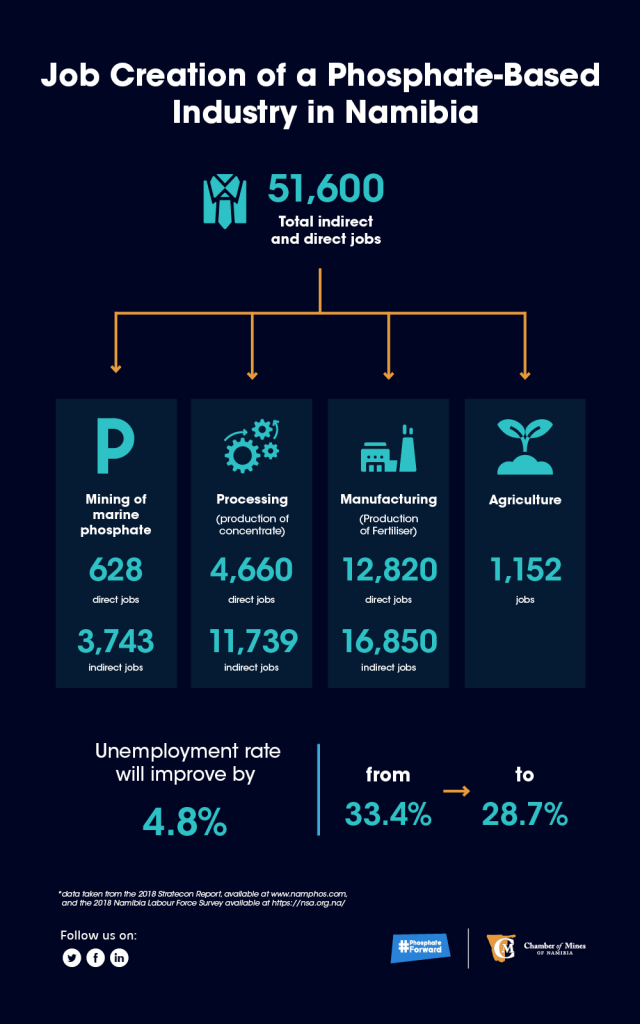
Towards Co-Existence and Economic Upliftment
The existence of a marine phosphate industry within the Namibian mining sector will contribute substantially to achieve the desired National developmental objectives and targets in key policy agendas.
Allowing its development will create new local industries and support growth in others. Such an industry will undoubtedly be of great measure in achieving the country’s desired economic transformation and goals of economic independence and industrialisation, contributing to the improved well-being of all Namibians.
